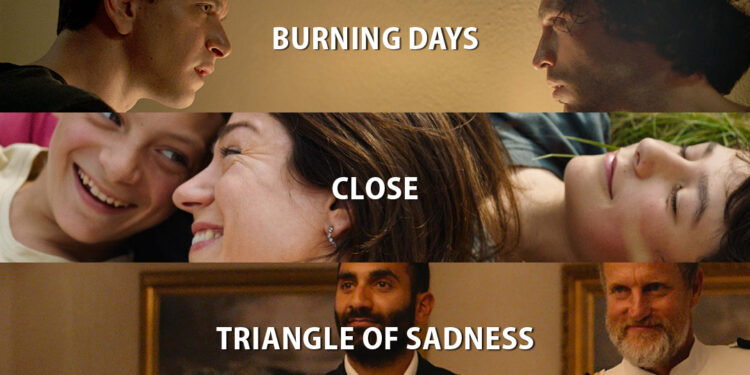[ad_1]
The Vice-President of the European Parliament Evelyn Regner (AT, S&D) said:
“For the 2023 edition of the LUX Audience Award, five excellent films are waiting for your critical eyes. For me as member of the European Parliament, watching and talking about these films with citizens all over our Union is always one of my annual highlights. The films selected for this year‘s competition again raise awareness and address issues about our main social and political challenges – all in their own unique, funny, sad, artistic way. I invite you all to join us watching and discussing them!“
Chair of the European Parliament’s Committee on Culture and Education Sabine Verheyen (EPP,DE) said:
“This year, for the first time, the LUX Audience Award is happening fully in its new format with five selected films. This year’s LUX is all about love. Our love for European film, our culture, and others. After COVID-19, the war and inflation, cinemas need our support and we deserve something nice as well. So let’s show our love for European cinema by watching the LUX films and don’t forget to review them afterwards.”
Discover the films
“Alcarràs” produced by Spain and Italy, tells a story about the Solé family that has spent every summer picking peaches in their orchard in Alcarràs, a small village in Spain’s Catalonia region. But this year’s crop may well be their last. New plans for the land, which include cutting down the peach trees and installing solar panels, cause a rift in this large, tight-knit family.
“Burning Days”, produced by Turkey, France, Germany, The Netherlands, Greece, Croatia, follows Emre, a young and dedicated prosecutor, newly appointed to a small town struggling with a water crisis and political scandals. After an initial welcome, he experiences an increasing number of tense interactions and is reluctantly dragged into local politics. When Emre forms a bond with the owner of the local newspaper pressure on him escalates due to heated rumours.
“Close”, by Belgium, France and the Netherlands explores a friendship between two thirteen-year old boys Leo and Remi that is suddenly disrupted. Struggling to understand what has happened, Leo approaches Sophie, Remi’s mother. “Close” is a film about friendship and responsibility.
“Triangle of Sadness”, co-produced by Sweden, Germany, France and the UK, is an uninhibited satire where roles and class are inverted and the tawdry economic value of beauty is unveiled. It begins with models couple Carl and Yaya invited for a luxury cruise with a rogues’ gallery of super-rich passengers, including a Russian oligarch, British arms dealers and an idiosyncratic, alcoholic, Marx-quoting captain. At first, all appears instagrammable…
“Will-o’-the-Wisp”, by Portugal and France. On his deathbed Alfredo, king without a crown, is taken back to distant youthful memories and the time he dreamt of becoming a fireman. The encounter with instructor Afonso from the fire brigade, opens a new chapter in the life of the two young men immersed in love and desire, and the will to change the status quo.
Next steps
The five nominated films will be subtitled in the EU’s 24 official languages, with screening organised across the EU cinemas. The EP Information offices will also organise free screenings in member states to promote the nominated films locally.
EU citizens who attend screenings will be able to rate the films out of five stars, starting from 11 December. The winner will be selected jointly by the Members of the European Parliament and the public ratings, each accounting for 50% of the final result.
Voting will conclude on 12 June 2023, with the winning film announced on 14 June 2023 at a European Parliament plenary sitting in Strasbourg.
Background
Since 2020, the LUX – European Audience Film Award has been awarded by the European Parliament and the European Film Academy, in partnership with the European Commission and the Europa Cinemas network.
The European Parliament established the LUX Film Prize in 2007 to help distribute European films with high artistic quality that reflect cultural diversity in Europe and beyond, and that touch upon topics of common concern, such as human dignity, equality, non-discrimination, inclusion, tolerance, justice and solidarity.
[ad_2]





















Discussion about this post